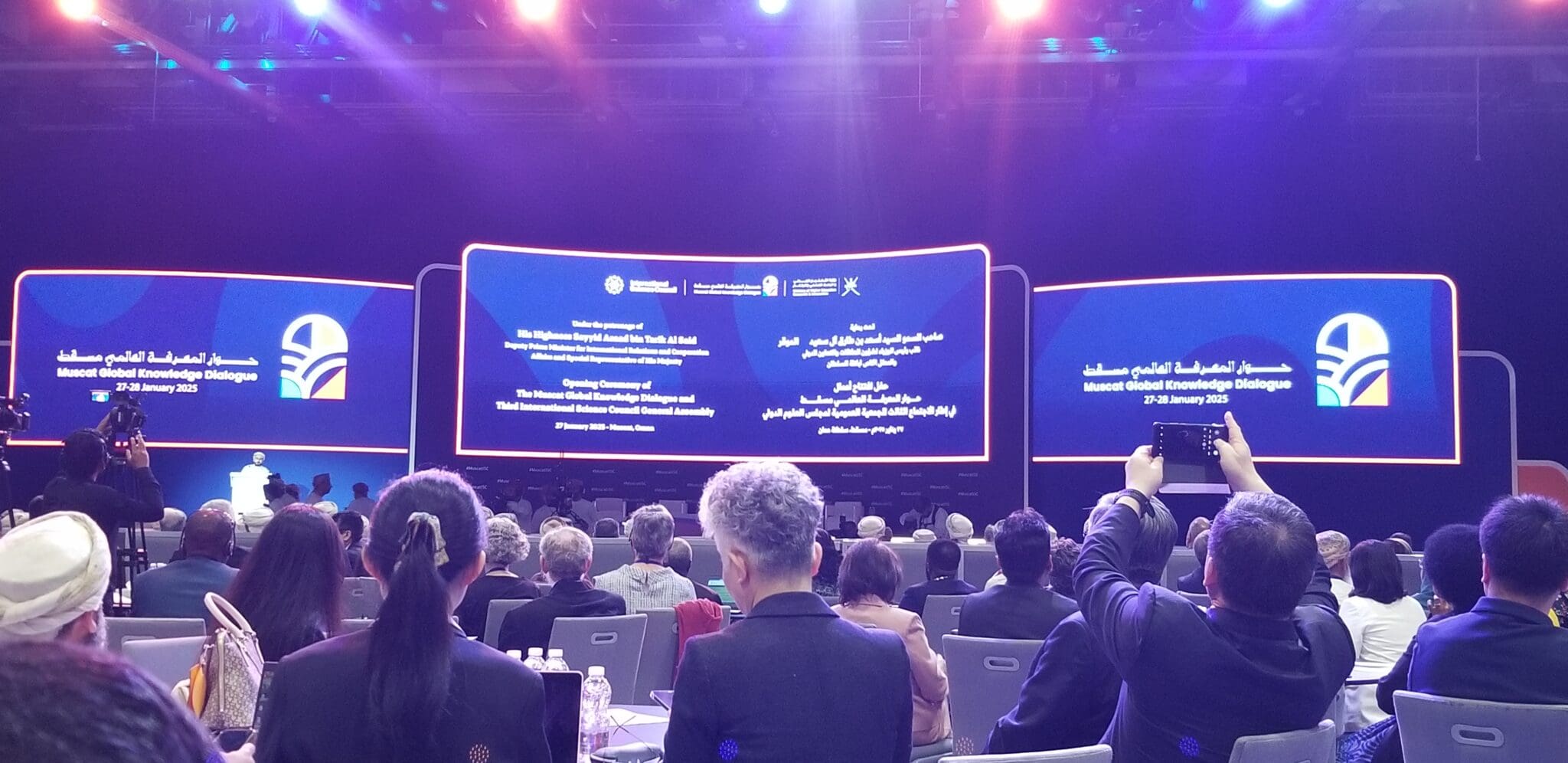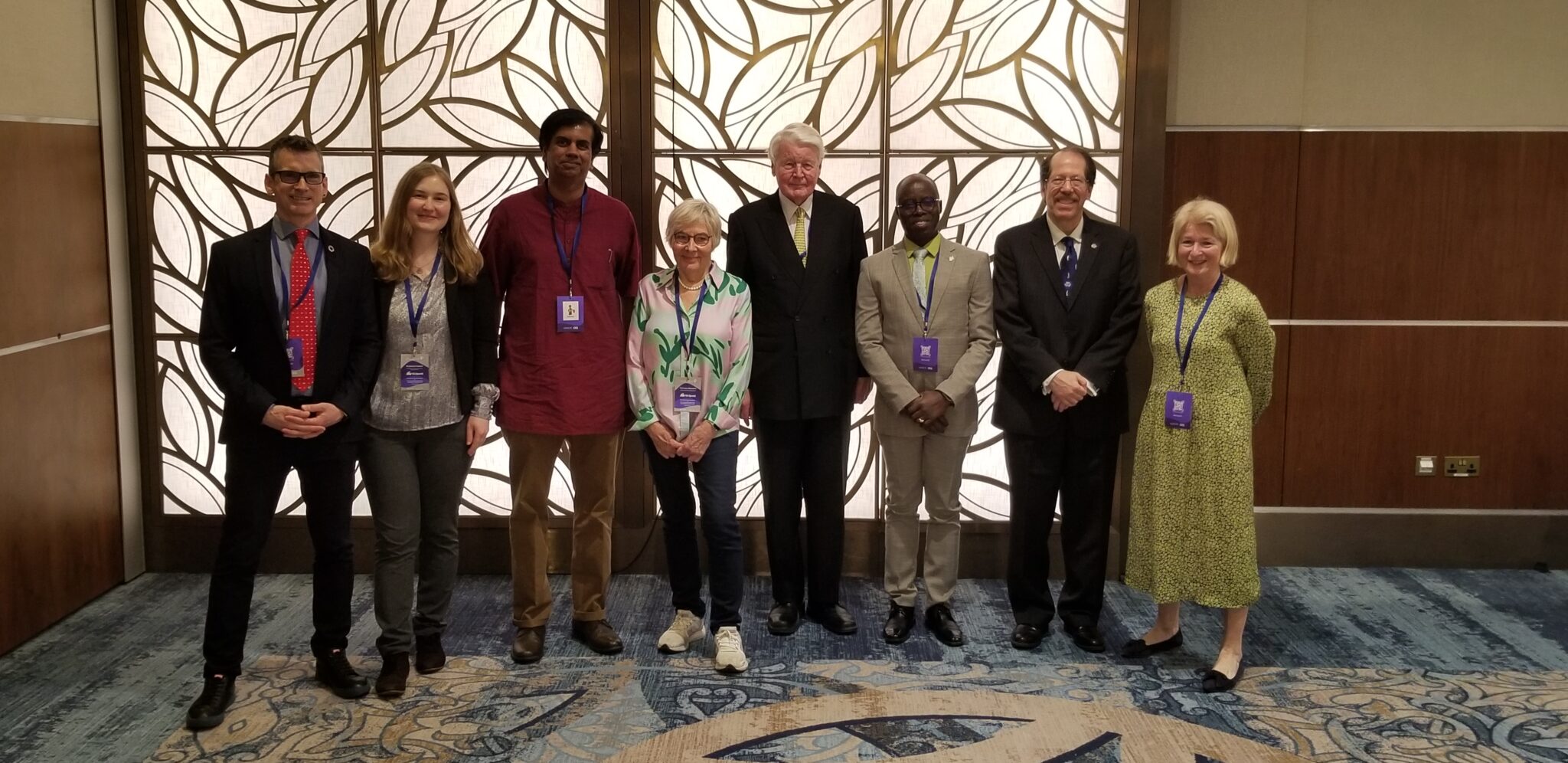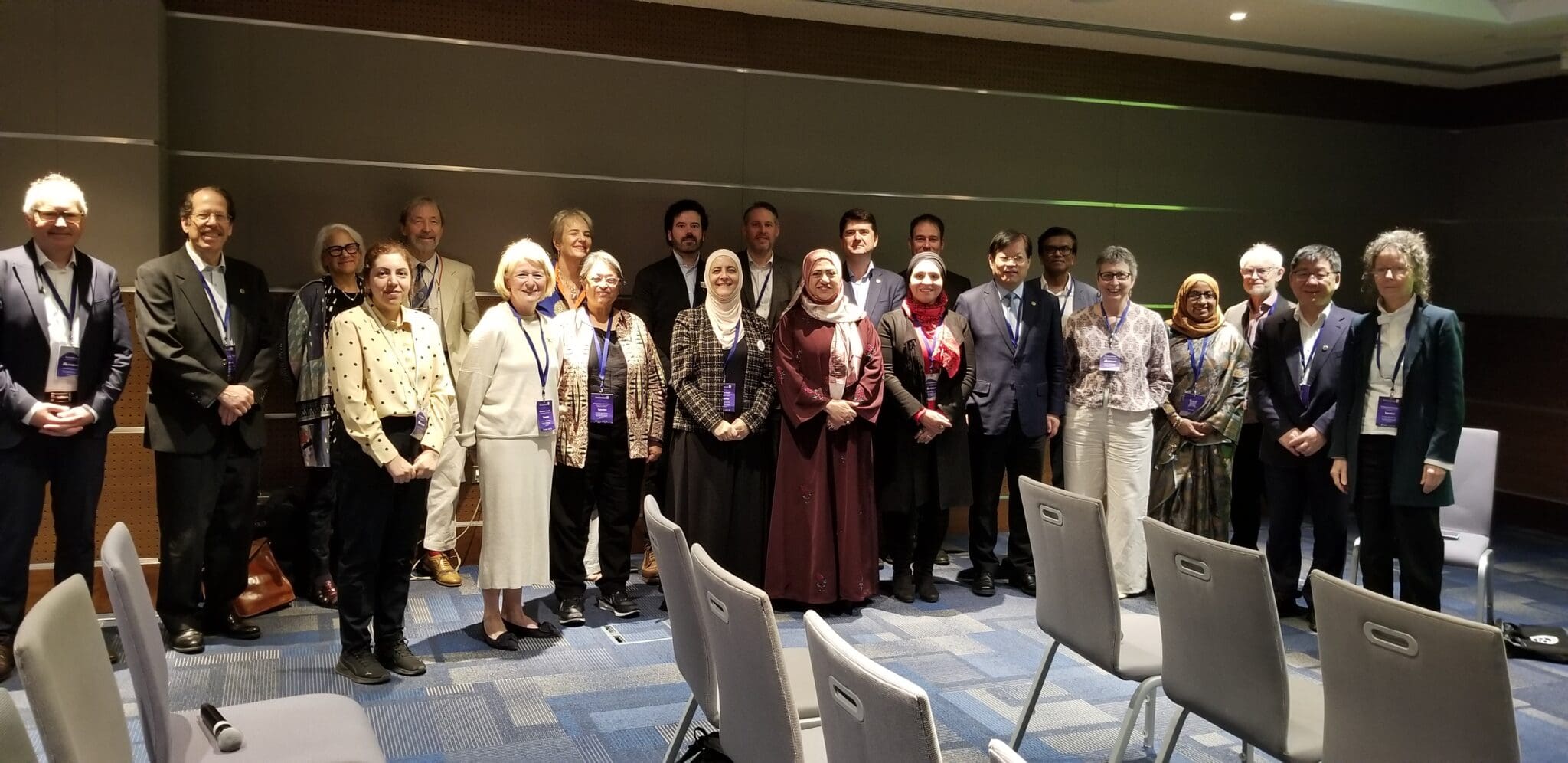The 3rd International Science Council (ISC) General Assembly was convened along with the Muscat Global Knowledge Dialogue in Oman from 26-30 January 2025. The pre-event workshops on 26 January and the “Muscat Global Knowledge Dialogue” on 27-28 January were open to all participants, including ISC Members, Fellows and invited guests.  The General Assembly days on 29-30 January were closed meetings for ISC Member delegates and ISC Fellows only. Professor Paul Arthur Berkman participated throughout the program as an ISC Fellow.

During the Muscat Global Knowledge Dialogue, Prof. Berkman contributed to the 27 January 2025 panel on Polar science and the International Polar Year, Exploring how the 5th International Polar Year (IPY-5) 2032-33 will reshape global scientific collaboration in the face of rapid climate and societal changes. This session offered key insights into how polar science is addressing real-world challenges through transdisciplinary, cross-regional research. Participants gained an understanding of how the IPY model can enhance the co-production of knowledge, drive actionable solutions, and set a blueprint for future international scientific cooperation to tackle global issues beyond the polar regions (📃 view slides)
Co-Chairs: Mike Sparrow, World Climate Research Programme (WCRP); Johanna Grabow, Scientific Committee on Antarctic Research (SCAR) (📃 view slides)
Speakers
-
- E. Ólafur Ragnar GrÃmsson, Arctic Circle
- Anna Mauranen, University of Helsinki
- Ramcharan Vijayaraghavan, Polar Educators International
- Paul Arthur Berkman, Founder, Science Diplomacy Centre, Inc.
- Mark Wuddivira, Caribbean Academy of Sciences (CAS)
- Anne Husebekk, Arctic University of Norway, ISC Governing Board
Related links
Members’ and Fellow’s resources
-
- Berkman, P.A. 2025. Science Diplomacy and the 5thInternational Polar Year (IPY-5): Planetary Considerations Across Centuries. Cambridge Prisms
- Future Directions for Southern Ocean and Antarctic Nearshore and Coastal Research(2024 consensus report) – National Academy of Sciences, USA
- Exploring Key Research and Monitoring Topics for U.S. Engagement in the Fifth International Polar Year(workshop) – National Academy of Sciences, USA

With its mission as the global voice of science, the ISC has been selecting “eminent scientists, engineers and thought-leaders from the science-policy sphere who have made remarkable contributions to the understanding of, and engagement with, science†to serve as ISC Fellows. During the 3rd ISC General Assembly, Prof. Berkman and Prof. Rana Dajani co-convened a side event on 29 January 2025 about an ISC Fellows – Brain Trust.
Among the nearly 230 ISC Fellows currently and growing from around the world, two dozen enthusiastically shared observations during this side event. The informal dialogue explored the possibility of creating a ‘brain trust’ of ISC Fellows that would frame and ask questions with research-into-action, stimulating inter- and transdisciplinary efforts on the critical challenges for the future of humanity, as elaborated in the Pact for the Future.
As a global community of science diplomats, the ISC Fellows have capacities, experiences and independence to operate with inclusion (who, what, when, where, why and how) beyond the self-interested and short-sighted dynamics of nations that compromise the welfare of our civilization in the 21st century on a planetary scale.
The ISC Fellows’ session in Oman complemented the focus of the International Decade of Sciences for Sustainable Development (IDSSD) 2024-2033 short-to-long term, potentially setting in motion a global source of synergies to support as well as enhance Open Science – which is “akin to the freedom of speech†at the heart of democracy – for the benefit of all on Earth across generations.

